Container, 1 column
1 column
1/2 column
1/2 column
1/3 column
1/3 column
1/3 column
1/3 column
2/3 column
1/4 column
1/4 column
1/4 column
1/4 column
1/4 column
3/4 column
1/5 column
1/5 column
1/5 column
1/5 column
1/5 column
1/5 column
4/5 column
1/6 column
1/6 column
1/6 column
1/6 column
1/6 column
1/6 column
1/6 column
5/6 column
Climate Justice Speaker Discusses the Intersection of Environmental and Racial Justice
The Westport Library, Saugatuck Congregational Church, Sustainable Westport, and TEAM Westport recently partnered to bring Roosevelt Institute Director of Climate Policy and environmental justice advocate Rhiana Gunn-Wright to Westport for a special event entitled, “It’s All Our Backyard: Just Transitions to Regional Sustainability.”
Ms. Gunn-Wright started the conversation by sharing her journey from a young girl growing up on the south side of Chicago to becoming one of the architects of the Green New Deal and the Director of Climate Policy at the Roosevelt Institute. She described learning about environmental justice during her time as a policy analyst in Detroit and the powerful connection she made to her own personal experience living in a frontline community, suffering from asthma caused by pollution in her neighborhood.
Throughout the talk, Ms. Gunn-Wright shared examples that emphasized the interconnection of environmental and racial justice. She explained, “There is no way to talk about the climate crisis without talking about race. You aren’t adding an extra dimension, you’re just acknowledging a dimension that already exists.” In addition to sharing details and statistics, she continually highlighted how unjust policies and practices disproportionately impact people of color, not only economically but physically and emotionally as well.
After taking questions from the audience, Ms. Gunn-Wright shared her recommendations on how to create change as an individual; by voting, supporting local environmental justice organizations, and constantly creating pressure on organizations and government to do better.
The talk was inspired by Westport’s commitment to becoming a sustainable, thriving community — economically, environmentally, and socially — and by our ongoing community-based efforts to dismantle systemic racism. Brought to you by The Westport Library, Saugatuck Congregational Church, Sustainable Westport, and TEAM Westport.
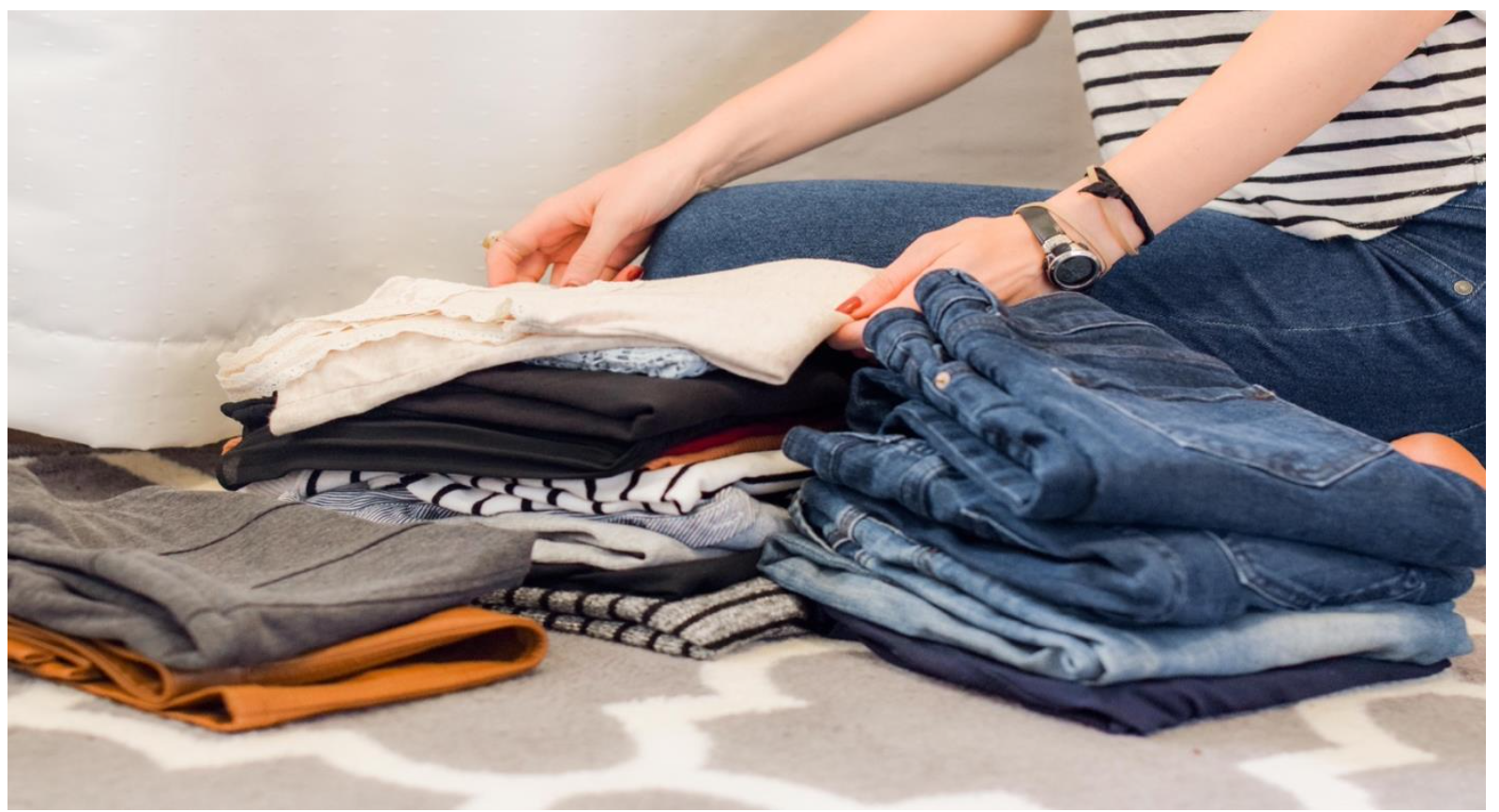
Textile Waste: Reduce, Reuse, Recycle
Guest blogger Jaclyn Noble is an experienced and accomplished textile supply chain expert with over 20 years of leadership experience for renowned USA retail brands including Spanx, Coach, The North Face, and Victoria’s Secret. Originally from Scotland, she obtained her degree in Textile Technology before relocating to Hong Kong. In 2002, she settled her family in Westport, where she has been an active member of the community. Jaclyn is the proud mom of three, fun, young adults who all attended Long Lots, Bedford, and Staples. Additionally, she shares her life with two beloved Spaniels, Maxi, and Sunny, who can frequently be seen enjoying Winslow Park.
Do you ever wonder where all your discarded textiles go?
Do you long to find your much-loved apparel a wonderful second home?
Do you worry you’ve loved your garments way too much to recycle?
The average American throws away 80 pounds of clothing per year. While we hope to reduce the overall amount of textile waste we produce, the good news is that 95% of worn or torn textiles can be donated or recycled. The bad news is only 15% are, which contributes to a massive global waste issue.
The environmental impact of textile waste has spiraled out of control. With the apparel sector contributing to approximately 10% of the annual global carbon emissions, this fraction is projected to grow to more than 50% by 2030. Having worked in the apparel industry for over three decades, I have witnessed the relentless pace of fast fashion, and textiles becoming one of the largest polluters in the world.
There is some good news! Westport is recycling more and more of its textile waste.
Bay State Textiles, which operates donation boxes at the Westport Transfer Station, have steadily increased from 7,620 pounds in 2016 to 28,230 pounds in 2022.
Many people think their waste needs to be useable to be recycled. However, Bay State Textiles will accept any condition of apparel, footwear, accessories (bags, gloves, scarfs), home linens, pillows, throws, and stuffed animals – as long as they are dry. Click here for the full list.
So, whatever you buy, try to keep it in circulation, and REDUCE, REUSE, RECYCLE!
Along with Bay State Textiles, there are other ways to reduce the estimated 90,000 yearly tons of textile waste generated in CT.
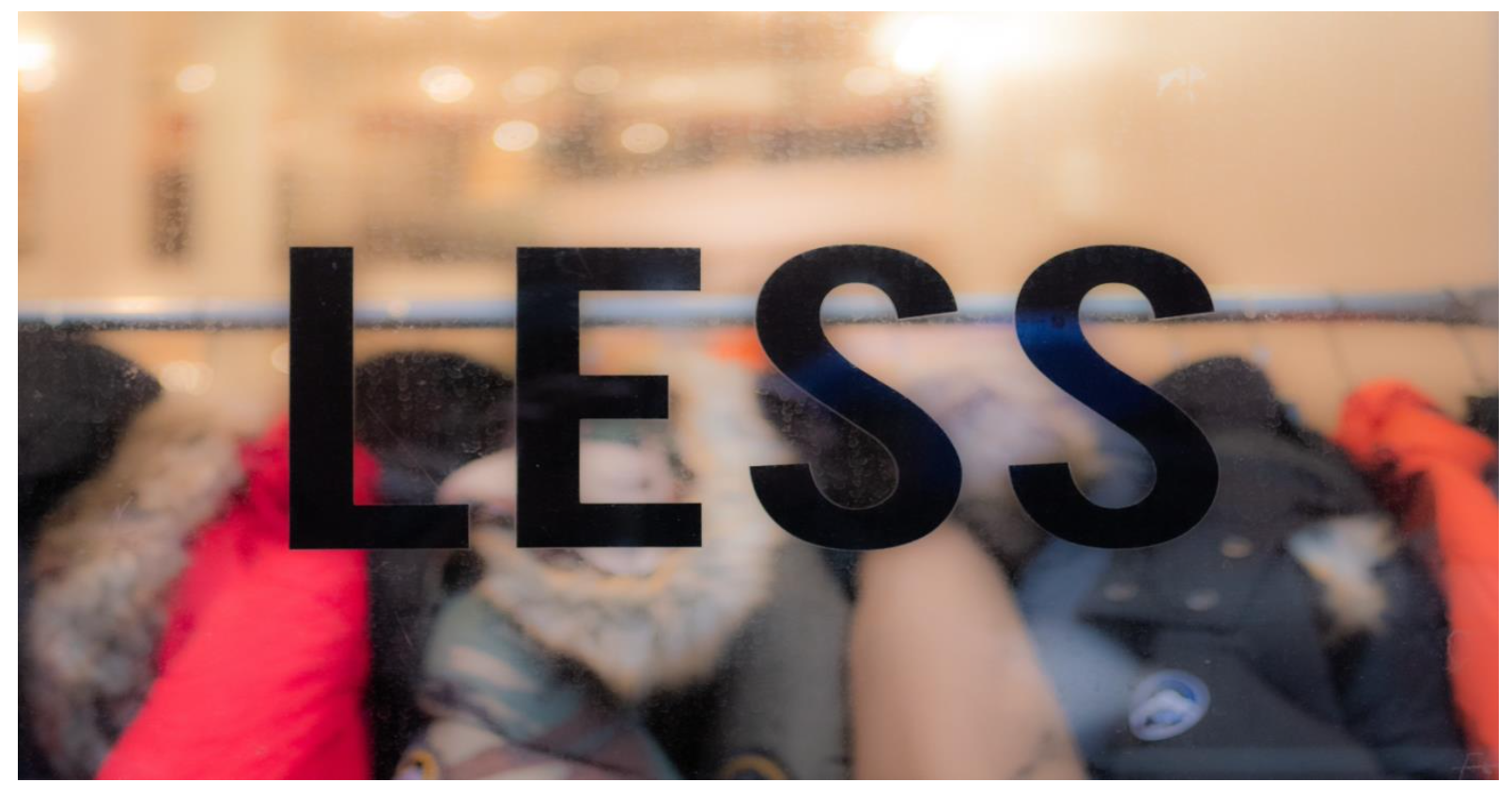
REDUCE – The most sustainable garment is the one you already own!
The best way to reduce apparel waste is to stop the constant stream of statement pieces in your wardrobe. Easier said than done, I know, but with the total global textile waste at approximately 92 million tons per year, most of which ends up in the landfills of developing countries, reducing the number of garments made across the globe is critical. How do you do this?
The average person only wears 20% of the clothes in their closet.
Crazy right? So if you’re going to add to your collection, the best way to reduce is to practice conscious shopping: look for higher quality timeless pieces which will last longer and, where possible, try to purchase from sustainable brands (The Luxe Strategist).
Some well-known sustainable brands here in town are Patagonia, Eileen Fisher, Theory (Good Collection), and Unsubscribe. Make sure to visit the website of the brands you love and see if they publish a sustainability plan (Lululemon’s Sustainability Plan). Use your spending dollars to influence the change you want to see.
Where possible, go for natural fibers such as cotton, linen, and wool, which are easier to decompose than synthetic materials like polyester, nylon, and acrylic.
You may not know, but your favorite synthetic material shirt sheds fibers when put into your laundry. Those fibers cause microplastic pollution in our waterways, which may have negative health effects on humans and ecosystems.
Lastly, be conscious when you shop. If you see something you “love”, leave it for 24 hours. Then, if you still love it the next day, make the purchase. Chances are that impulse to ‘buy” will be gone, and you’ll be able to say ‘bye” to more. Instead, try out the minimalist lifestyle – that’s what I’ve been doing!
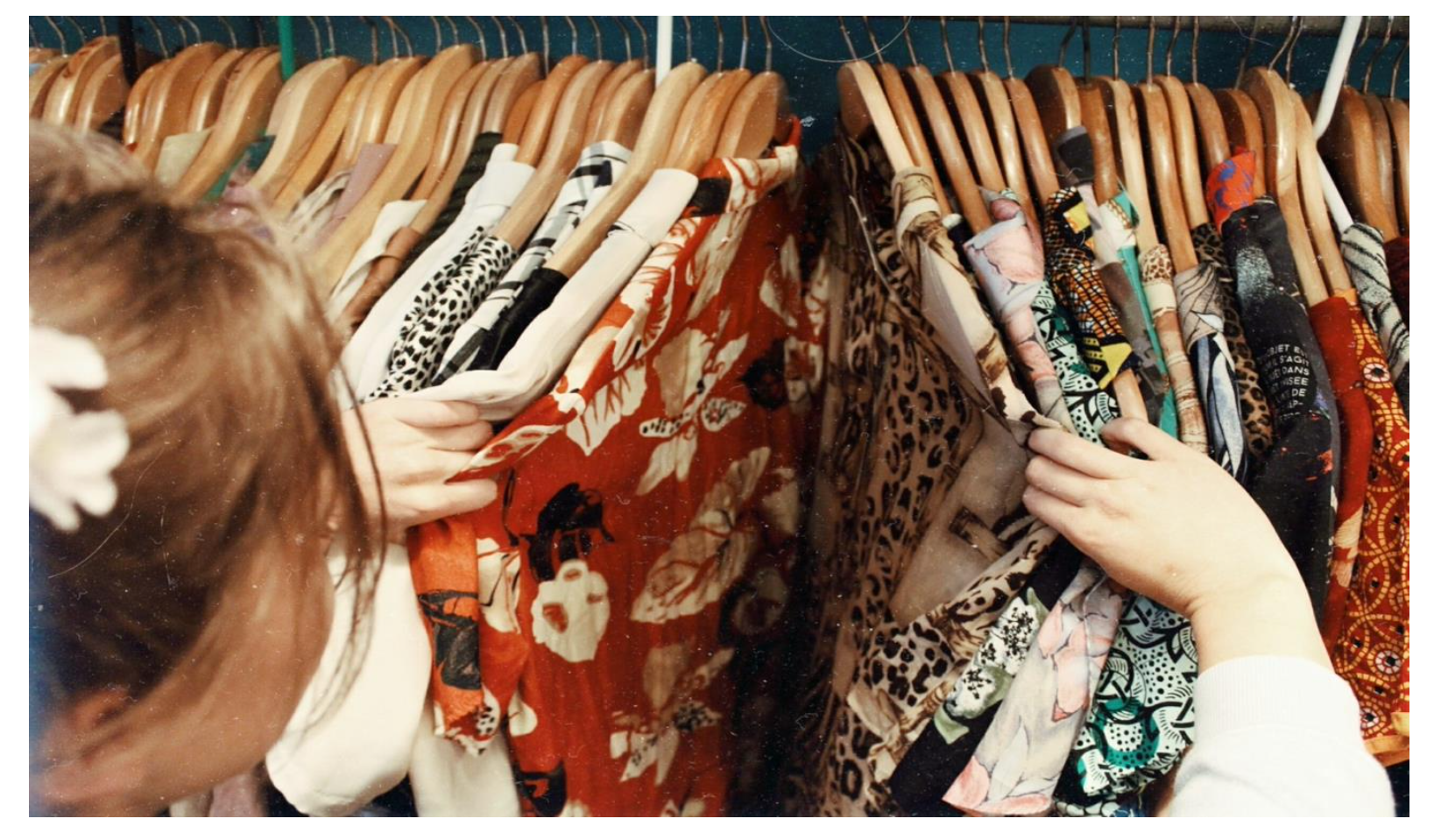
REUSE – Keep whatever you buy in circulation for as long as possible!
Many amazing, ethical businesses in Westport focus on clothing reusability.
Instead of buying new, consider buying “pre-loved” garments. Around the Rosey (specializing in children’s clothing), Designer Label Consignments in Westport, and Twice Is Nice in Southport are a few of the businesses that have become members of a growing market for ‘reused’ clothes.
If you want to dive deep into thrifting and wish to make a road trip out of it, check out the Best Consignment Shops in CT.
Don’t worry; if you’re a homebody who loves to shop online (like me!), find an online resale fashion platform, here: Best Online Consignment Stores 2023. Also, I’ve loved using Rent the Runway to rent clothes online, especially if I have a special place to be. You can also try Best Clothing Rental Services to find more options like this.
Repair is another excellent way to extend the life of those beloved items, and here in town, we have some fantastic tailors and cobblers (yes, that’s still a thing!).
Or, get creative and upcycle (The Benefits of Upcycling) by turning an old garment into a new design or repurposing the scrap fabric and “parts” for new uses.

RECYCLE – Don’t judge, just donate!
What to do when you realize you must get rid of that cute hot pink dress that you’ve had since you were 20, with dreams that you’ll be able to fit back into it one day? Sorry, I’m projecting…
But seriously, there are so many great options when it comes to recycling clothes that you need to part ways with. Check out Sustainable Westport provides a great list of places to donate used clothing. Keep an eye out for other local clothing drives as well. For example, the Westport Woman’s Club is looking for gently used clothes to resell at the Curio Cottage on Imperial Ave. Greens Farms Church, on Hillandale, has a collection box where you can drop off used or unwanted garments to be donated to local non-profits in need.
Many fashion brands also have recycling programs. Take Madewell or Levi’s, for example, where you can donate denim from any brand, and the Nike Recycled Sneaker & Clothes Program, where you can drop off athletic shoes from any brand. Even if an item is badly stained, missing buttons, or torn, it can still be recycled into rags, pillows, stuffed animals, or insulation for various uses.
Bay State Textiles is a recycling no-judgment zone. They collect ALL dry donations into 40,000-pound bales and ship them to South America, where they sort them into categories. Anything in good condition is reused, and the balance is recycled.
With global apparel consumption expected to reach over 100 million tons annually by 2030, understanding how to reduce your contribution to this waste is a must, especially when considering that Americans throw away 80 pounds of textile waste per person every year.
Don’t think this is an impossible hill to climb, every individual has a part to play in the story of textile waste, and remember…
- The most sustainable garment is the one you already own!
- Whatever you buy, keep it in circulation for as long as possible!
- Don’t judge, just donate (as long as it’s dry)!
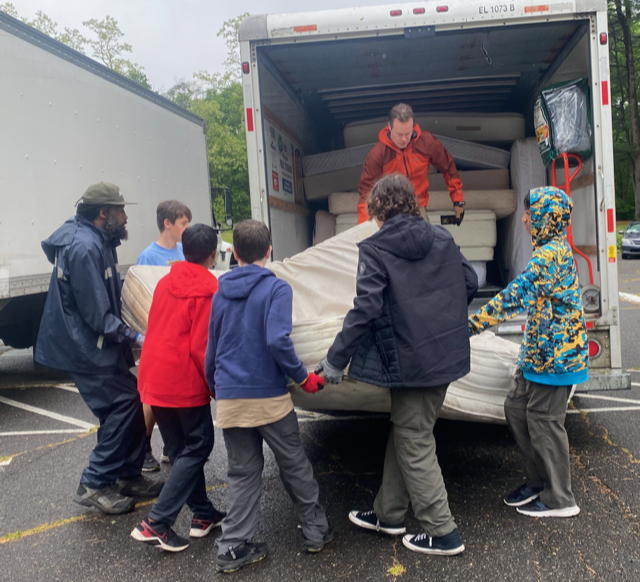
Westport Residents Support Mattress Recycling Event
The rain did not stop Westport residents from being part of the zero waste solution at this weekend’s Free Bi-Annual Mattress/Box Spring Recycling Event.
59 mattresses/box springs, weighing an incredible 3,231 lbs, were diverted from the trash with the help of our recycling partner Bye Bye Mattress. Over 90% of the material collected at the event can be recycled into new products, instead of ending up in a landfill or incinerator.
Special THANK YOU to Boy Scout Troop 36 for their hard work in the rain, picking up roughly 75% of the mattresses/box springs from our community!
Miss the recycling event? You can recycle your mattress or box spring anytime at (call ahead):
Park City Green
459 Iranistan Ave
Bridgeport, CT 06604
203-212-3858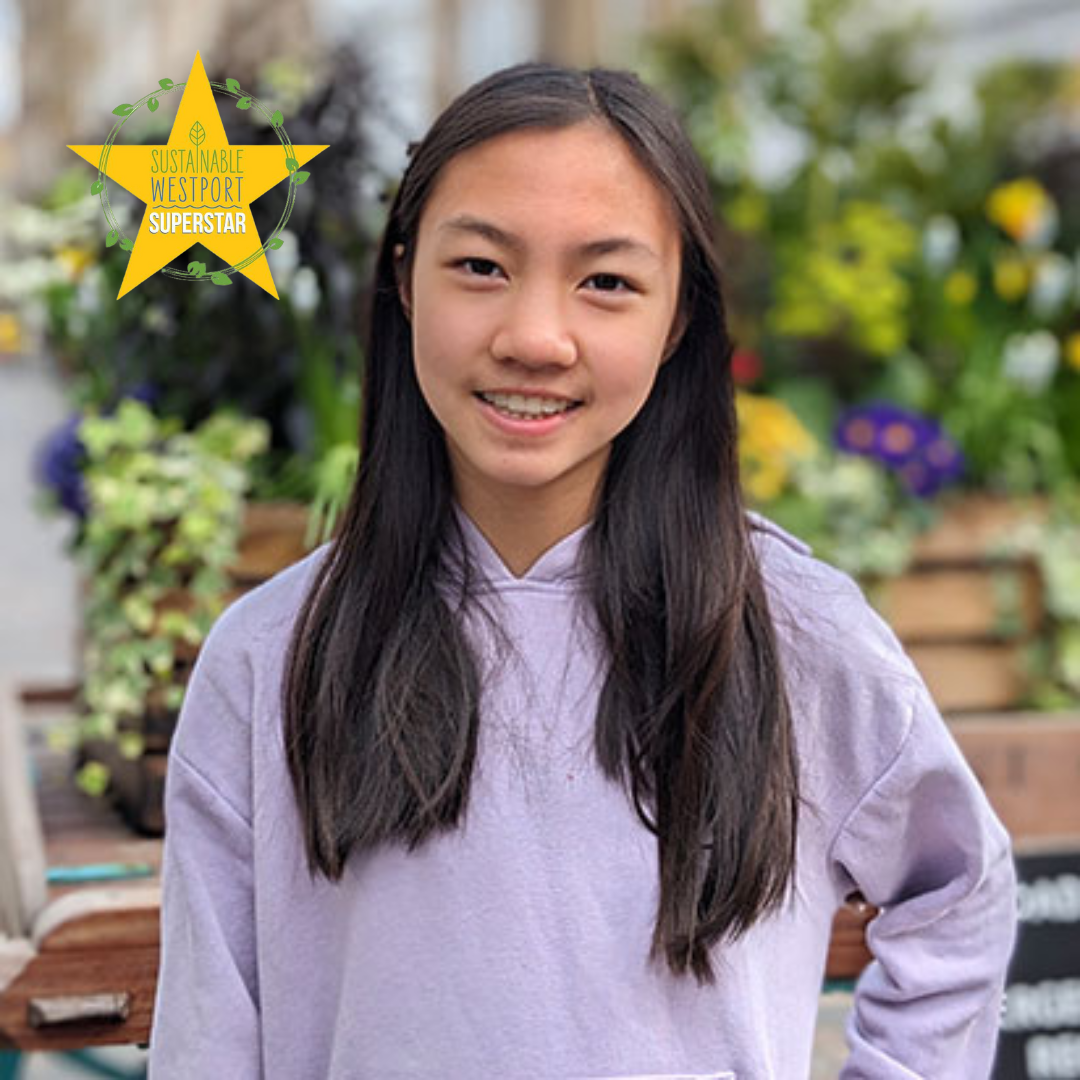
Sustainable Westport Superstar: Jade Lan, Student at Coleytown Middle School
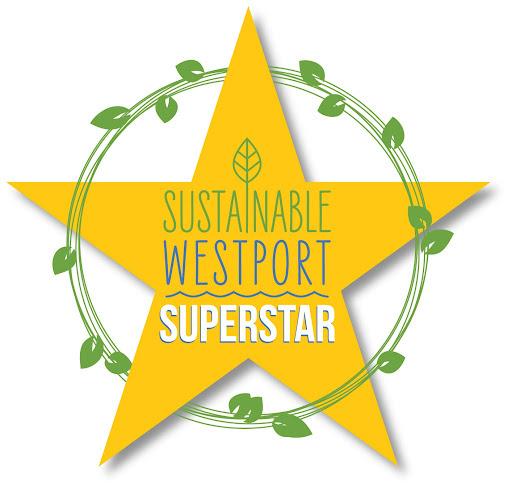
Congratulations to sixth-grade student, Jade Lan, for winning second place in the World of 8 Billion national video contest challenge!
Jade, who attends Coleytown Middle School, was inspired to create a video on environmental justice after reading a New York Times article about a young Houston family losing their recently-purchased home due to a natural disaster. She thought it was unfair that more affordable houses are often built in places that are more directly impacted by climate change/natural disasters. Before making her video, entitled “Monitoring Climate Injustice,” Jade was not aware of the growing population or its connections to climate change. She was shocked to learn that the countries that put out the least amount of emissions are also the ones most affected by climate change impacts.
The World of 8 Billion student video contest is a project of Population Education, a non-profit program based in Washington DC. This year, the organization received over 25,000 student-made videos that explain how population growth impacts one of the following global topics: Climate Change, Gender Equality, and Waste. In the video, students are also asked to offer an idea for a sustainable solution.
Jade’s video provides an excellent overview of the impact of population growth on climate change as well as her solution to keep countries accountable towards their commitments to change – a global progress dashboard. Check it out below!
Congratulations to Jade! Thank you for being a Sustainable Westport Superstar!

Westport Rotary Honors Sustainable Westport at Annual Day of Service Event
Sustainable Westport’s Co-Directors Gately Ross and Johanna Martell pose with Westport Rotary Club’s Giving Committee Chair, Peter Helt.
Sustainable Westport was recognized alongside 38 other community organizations at the Westport Rotary Club’s annual Day of Service event. Sustainable Westport’s Co-Directors Gately Ross and Johanna Martell were honored to attend the civic organization’s annual luncheon and to receive a $2500 Community Partnership Organization Grant.
Thank you to the Rotary Club for your ongoing support of our mission: to inspire, connect, and support the residents, businesses, and government of Westport in reaching our collective goal of becoming a Net Zero Community by 2050.
Earth Day 2023
Each year on Earth Day, our global community comes together to celebrate the environmental movement, foster sustainable practices, and raise awareness of the need to protect our planet for future generations. Sustainable Westport celebrated Earth Day 2023 by coordinating two high-impact initiatives in partnership with the Town of Westport and the Democratic Women of Westport.
Sustainable Westport was proud to participate in the Town of Westport Parks and Recreation Department’s “Clean-up Westport Day.” Our team of volunteers spent the morning scouring Wakeman Fields, picking trash and debris to ensure the fields we all know and love are free from litter.

Leading up to Earth Day, Sustainable Westport assisted the Democratic Women of Westport with developing their Earth Day initiative,“Sustainability on the Sidelines.” DWW volunteers manned tables Wakeman Fields, Town Fields, and Coleytown Middle School to provide residents with tips on how to make youth sports more sustainable. Volunteers of all ages also provided free samples of powdered gatorade, which eliminates the need to purchase sports drinks in disposable plastic bottles.
As a part of the “Sustainability on the Sidelines” initiative, DWW and Sustainable Westport are looking to start a Youth Sports Uniform & Exchange Program in Westport. If you are interested in getting involved, please fill out our volunteer form or shoot us an email at admin@sustinablewesport.org.
Did you miss celebrating Earth Day? It’s not too late. You can always participate by pledging to change a behavior (ex. bringing a reusable mug to local shops to support Refill Not Landfill, opting for powdered Gatorade instead of buying individual bottles, etc.) or by simply reading to expand your knowledge.
Regardless of how you celebrate Earth Day, know that your actions do make a difference, no matter how small!

Sustainability on the Sidelines
Sustainable Westport and the Democratic Women of Westport share the top four tips for making youth sports more sustainable:
Reusable Bottle: One of the most impactful changes you can make is ensuring your children utilize reusable bottles for their sideline drink of choice.
Billions of single-use plastic bottles are produced every year and only a small percentage are recycled. Those that end up in landfills (or our oceans) take up to 450 years to degrade. Reusable bottles help prevent waste from ending up in landfills and create significantly fewer emissions than the production and distribution of plastic bottles. In fact, tap water is 10,000 times less carbon-intensive than bottled water!
Make sure your child has a reusable bottle and fill it as you go.
Carpool: Whenever possible, coordinate carpools to cut pollution and build community.
When multiple people share a ride, it reduces the number of vehicles on the road, which in turn reduces traffic congestion and decreases the emission of harmful pollutants. It. can also save you time and gas money!
Carpooling also provides kids with the opportunity to socialize and build team camaraderie.
No Idiling: When waiting for your child, turn off your engine! You’ll save gas, help the environment, and prevent children from breathing in toxic chemicals.
Idling vehicles contribute to air pollution and emit air toxins, which are pollutants known or suspected to cause cancer and other serious health effects. Children are particularly susceptible to the impacts of air pollution. Limiting a vehicle’s idling time can dramatically reduce these pollutants and our children’s exposure to them.
Not to mention, if you are going to wait more than 10 seconds, it uses less gas to restart your car than it would to keep it running. Commit to turning off your engine!
Start or Participate in a Uniform/Equipment Exchange
Youth sports generate a large amount of textile and equipment waste. Not only do kids grow out of equipment quickly, they also rarely re-wear old uniforms post-season. Only 10-20% of donations to chain thrift stores actually end up on store shelves, the remaining 80-90% of donations are shipped overseas to landfills. At the end of the next sports season, inquire about uniform/equipment exchange or donation programs. If a program doesn’t exist, make an impact in your community by organizing a uniform/equipment exchange or donation program to reduce waste and build community!
GET INVOLVED!
Sustainable Westport is looking to help reduce uniform and equipment waste by coordinating a Westport youth sports uniform and equipment exchange program. Contact admin@sustainablewestport.com to volunteer.
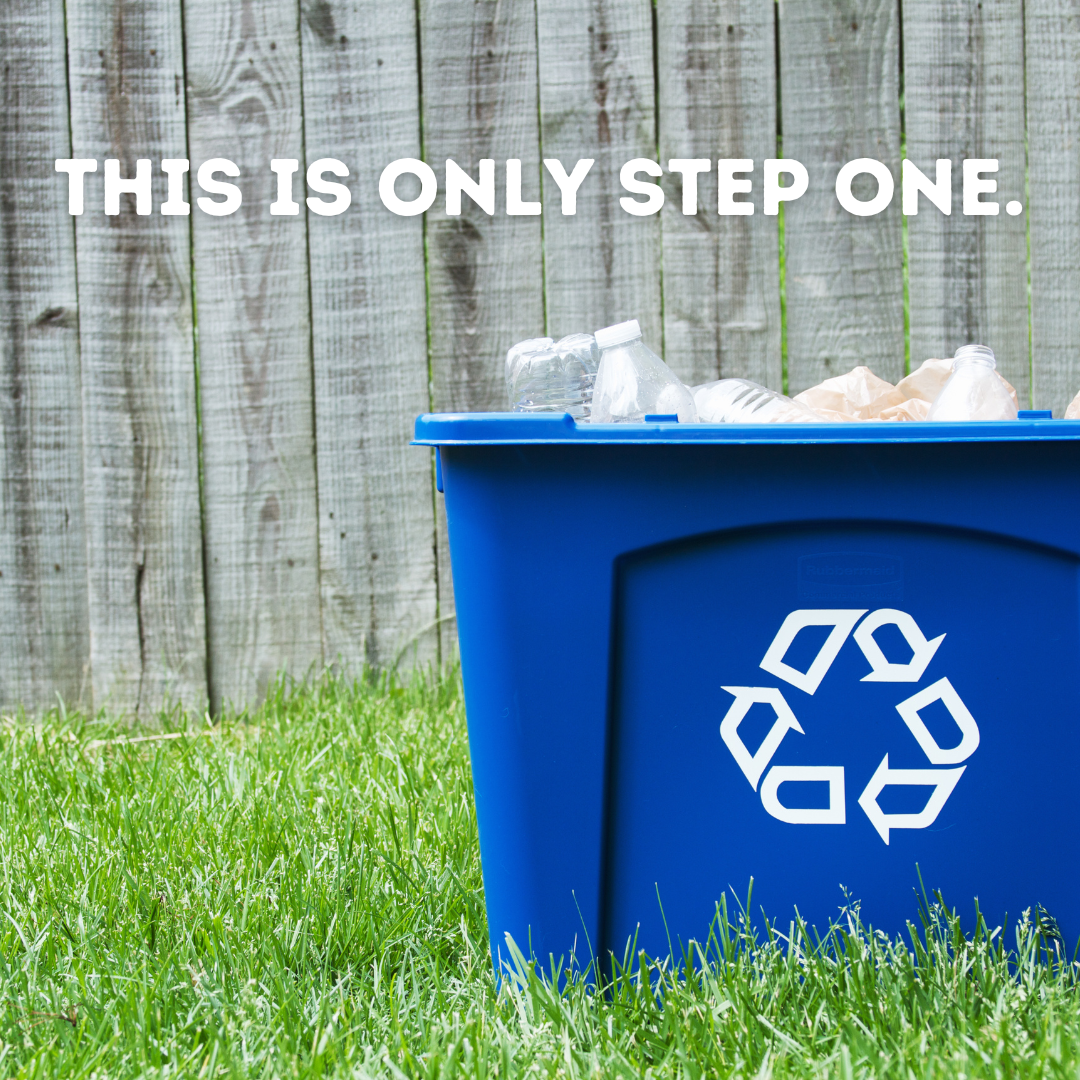
BEYOND THE BIN: The Post-Consumer Recycled Material Market
Many people don’t realize their role in recycling beyond separating recyclables into the blue bin. When it comes to recycling, our responsibility as consumers is actually two-fold. To complete the cycle of recycling, not only do we need to “recycle right”, but we also need to help generate demand for recycled goods through intentional shopping habits.
As you may know, after you separate recyclable materials from the trash, they make their way to your local Materials Recycling Facility (MuRF). Here, the materials are sorted, baled, and sold at market value to manufacturers to make into products again.
Recycling is a commodities market. As with all commodities, supply and demand, as well as the quality of the product impacts its value. The markets can vary greatly. For example, Resource Recovery Magazine recently stated that the national average price for corrugated containers is down 32% from an average $114/ton to a current average of $78/ton. This compares with $169/ton in September of 2021. Plastics are down on their luck right now as well. When demand goes up, so will its value.
We want to increase the demand for post-consumer recycled products so we can build a strong market for recycled goods. If we drive up market value for products made from recycled content, it spurs deeper investment in recycled materials across Materials Recycling Facilities (MuRFs), reclaimers, and organizations that work with the waste stream.
In addition to helping increase the market value of recycled materials, buying products made from recycled materials also:
- Reduces the amount of materials that end up in landfills/incinerators
- Supports the development of green technologies
- Creates jobs and strengthens the local economy
- Helps protect the environment. Compared to products made with virgin materials, products made from recycled materials:
- Utilize less natural resources and energy to produce
- Generate less air and water pollution
- Produce less greenhouse gases
Recycling helps preserve our environment and reduce waste, but as in any economy, it only works if the products and packaging made from recycled materials are in high demand. When shopping, opt for products with labels like “made with recycled content,” “contains recycled plastic,” or “postconsumer content,” which are recycled materials from homes and businesses. Unfortunately, the recycling symbol itself is unregulated, which allows manufacturers to widely and intentionally misrepresent their products (called greenwashing). To ensure a product is made from recycled materials, read the labels, do your research, or speak with a product representative before purchasing.
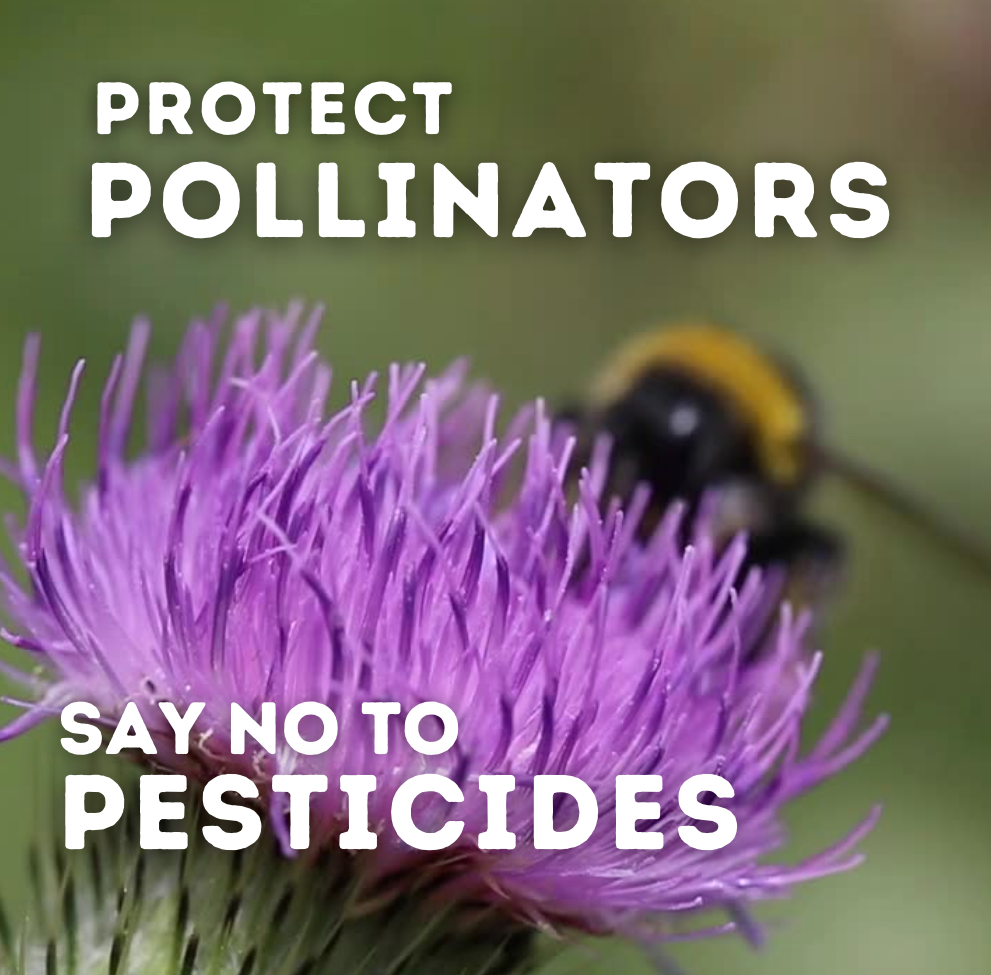
The Problem with Pesticides
Want to support our pollinator population? Say NO to pesticides.
Hundreds of scientific studies have linked neonicotinoids (“neonics” for short), a popular and highly toxic class of synthetic insecticides, to massive bee, pollinator, and bird population losses around the globe. In CT alone, beekeepers reported losing 65.7% of their colonies this year.
The problem is neonics are extremely toxic and kill indiscriminately, exterminating both the “pest” insects and butterflies, bees, and other wildlife. How toxic are they? Eating just one neonic-treated seed is enough to kill some songbirds, and even at low doses, neonics can harm birds’ immune systems, fertility, navigation, cause rapid weight loss, and reduce birds’ chances of surviving in the wild.
Humans (and pets) are not immune to the harmful effects of neonics either; research links neonicotinoids to potential neurological, developmental and reproductive harms, including malformations of the developing heart and brain.
The widespread use of neonics also impacts the quality of our groundwater, seeping through the soil and contaminating our waterways, poisoning additional plants and wildlife along the way.
While Connecticut has taken substantial steps to regulate pesticides, they have not completely banned neonics. The Pollinator Protection Act, which was passed in 2016, classified neonicotinoids as “restricted use,” which limited the use of neonics to certified pesticide applicators. The problem is, while the average citizen cannot purchase neonics, they are still being used in dangerous quantities through certified pest control and lawn management companies.
Connecticut legislators are considering a new bill (No. 963) that would expand the Pollinator Protection Act to ban all nonagricultural use of neonics. New Jersey and Maine have already taken similar steps to restrict neonics. New York is currently working to pass similar legislation.
Protect our pollinators, wildlife, pets, and public health by committing to being pesticide free this year. Want to take your support a step further? Contact your Connecticut general assembly member and let them know you support Bill No. 963!
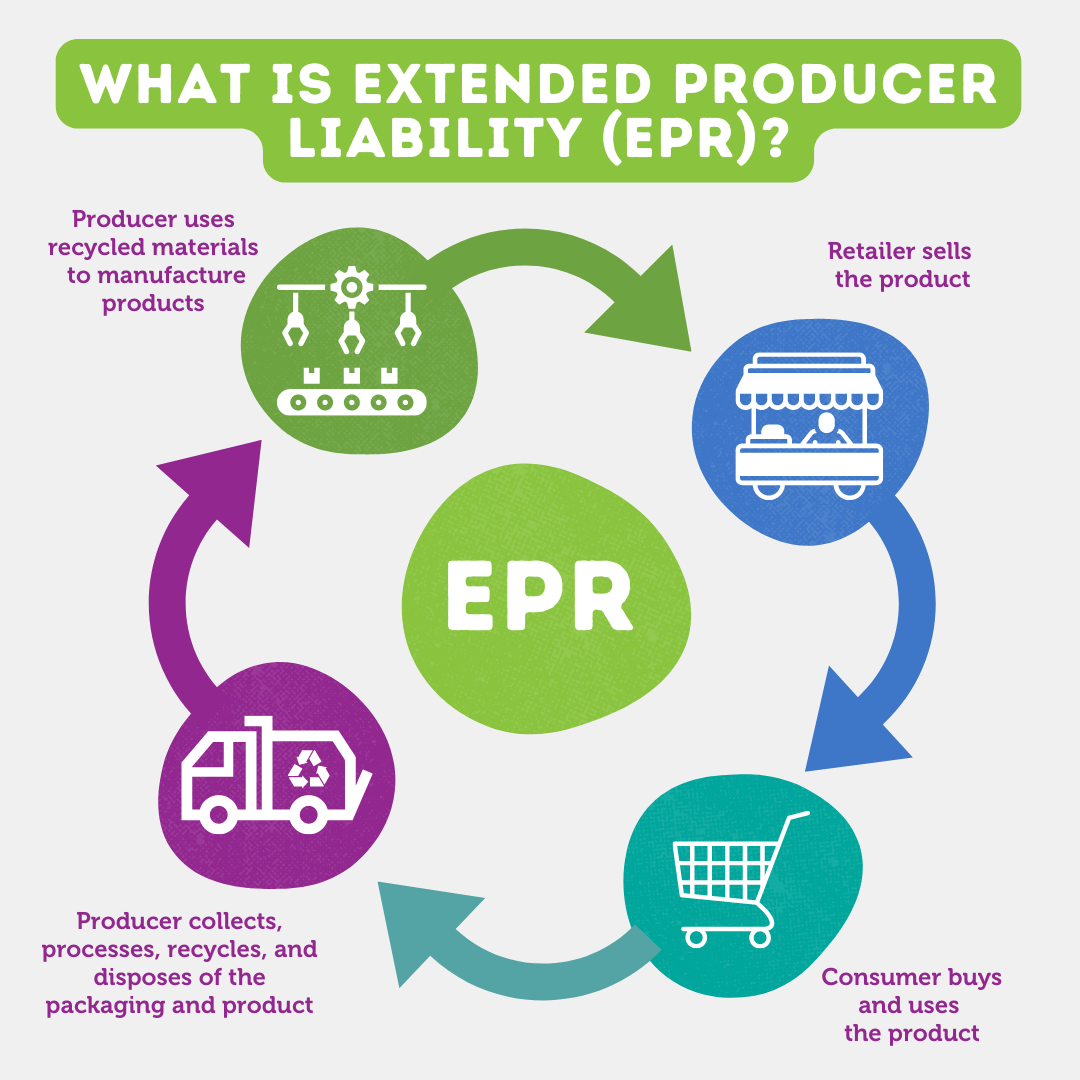
Shifting the Burden: EPR (Extended Producer Responsibility) in Westport
Extended Producer Responsibility (EPR), also known as Product Stewardship, is a policy strategy in which manufacturers, rather than consumers, are responsible for the collection and recycling/safe disposal of their products. This shift transfers the financial burden of product disposal from municipalities and states back to the product manufacturers. By placing the primary responsibility on the producer, EPR policies also encourage product design changes that minimize negative impacts on human health and the environment at every stage of the product’s lifecycle.
While manufacturers are required to foot the bill for the stewardship programs, critics argue that the costs of processing and disposal would be incorporated into the total cost of a product, ultimately impacting prices. However, this “comprehensive pricing” provides the opportunity for markets to emerge that truly reflect the environmental impacts of a product, and to which producers and consumers respond.
EPR policies are widespread throughout Europe and Canada and are gaining traction in the United States. Connecticut currently has EPR bills for the disposal or recycling of electronics, paint, and mattresses/box springs.
Recently, Governor Ned Lamont introduced a bill that would require paper and packaging products — everything from Amazon boxes, food wrappers, and those toilsome plastic clamshells — to pitch in to cover the costs of recycling their products in Connecticut. Ultimately, this component of the bill is on hold until neighboring states adopt their own similar programs.
EPR PROGRAMS IN WESTPORT
The Westport Transfer Station collects paint and e-waste under the State’s EPR initiative:
- Paint: the paint that is collected at the Transfer Station is hauled and recycled by Clean Harbors in Bristol, CT. FYI, about 1.9 tons of paint are recycled per month, and since its start on 9/5/2017, Westport has recycled over 140 tons of paint.
- E-Waste: the electronics that are collected at the Transfer Station are recycled by Take2 Inc. in Waterbury, CT. We also receive a rebate from Take2, that averages approximately $460/quarter.
The Westport Transfer Station also collects the following materials as mandated by the state of CT:
Textiles: are transported and recycled by Bay State Textiles in Pembroke, MA. Bay State issues the Town of Westport a rebate of approximately $125/mo.
Corrugated Cardboard: is transported directly from the transfer station by Enviro Express to the Oak Ridge Materials Recovery Facility in Shelton, CT.
Scrap Metal: is hauled by Enviro, and at this time is brought to Lajoie’s Scrap Metal & Metal Recycling in Norwalk. Enviro deducts the income from the scrap metal from Westport’s Trash Hauling costs.
Batteries & Lightbulbs: are transported and recycled by Northeast Lamp Recycling in East Windsor, CT. Any costs associated with these recycling streams are absorbed in Enviro’s Transfer Station contract.
Oil & Antifreeze: are transported and recycled by Tradebe Environmental Services in Bridgeport. Any costs associated with these recycling streams are absorbed in Enviro’s Transfer Station contract.
Glass: Since February 2022, Westport has collected glass separately from the single stream at the Transfer Station. When glass is separated from mixed recycling there is less contamination, resulting in higher-quality and more valuable glass material. To date, we have collected five, forty-yard dumpsters of glass, which makes its way to Urban Mining in Beacon Falls, CT. There it is ground down and transformed into pozzolan, an industrial filler for concrete that is safer, more sustainable, and higher performing than its predecessor, fly ash, a byproduct of coal-burning power plants. Westport can buy this recycled product to use in its municipal building projects (a circular economy!).
Additional EPR collection opportunities:
Mattress/Box Spring: Mattresses and box springs can be recycled at Sustainable Westport and Earthplace’s bi-annual mattress and box spring recycling event. Our next collection is scheduled for Saturday, May 20 from 8:30-11:30 a.m. at Earthplace. Miss the recycling event? You can recycle your mattress or box spring anytime at Buy Buy Mattress located at Park City Green located in Bridgeport.
Propane Tanks: Connecticut was the first state in the country to pass a bill to mandate the collection of propane tanks. Westport will be required to provide a disposal option in the near future. In the meantime, here is a list of companies that will dispose of propane tanks.
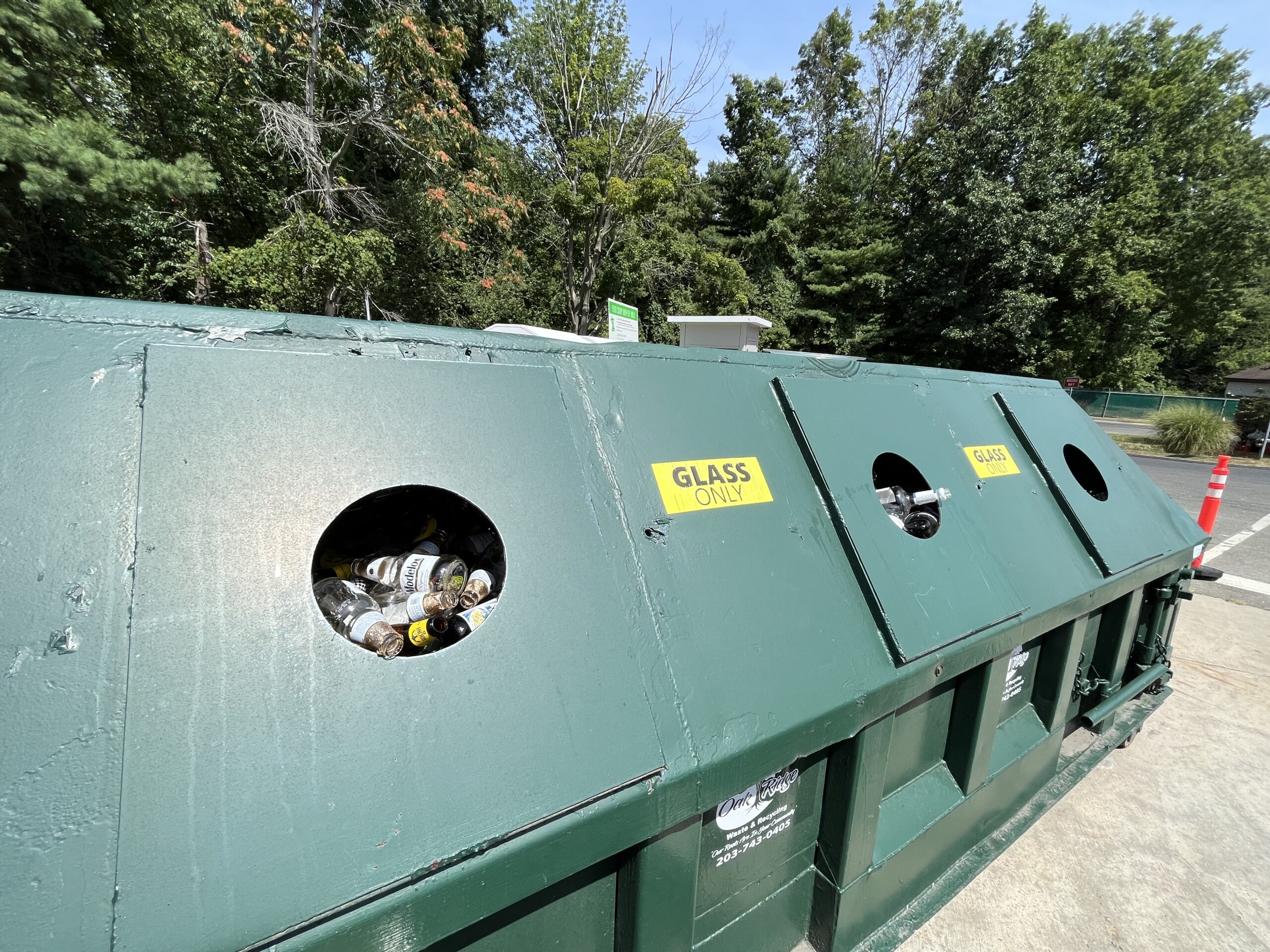
Separate glass recycling bins at the Westport Transfer Station







